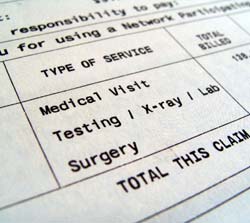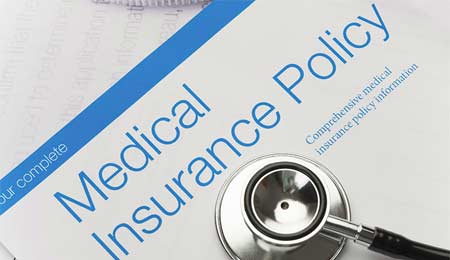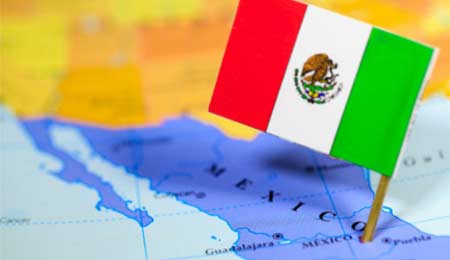Cost of Bariatric Surgery
The cost of bariatric surgery is a significant financial consideration and one of the primary concerns for most potential patients. In the United States, bariatric surgery costs an average of $15,000 to $25,000. Insurance coverage varies by provider and health plan.
Many factors contribute to the
overall cost of bariatric surgery.
For patients with health insurance coverage, the insurance company covers a portion of the cost of treatment. Although this reduces out-of-pocket payments, it still leaves deductibles, co-pays, and ongoing care expenses.
For some patients, insurance coverage is not available and cash-pay or patient financing are their only options.
As you consider your bariatric surgery options, the following information may help you better understand the cost differences you'll see when comparing bariatric surgeons and surgical weight loss programs.
Comparing Prices for Bariatric Surgery
The amount of surgery will vary from patient to patient, there is not one "right" price to pay for any type of bariatric procedure. From pre-op tests to post-op care, there are many expenses which determine the overall cost of bariatric surgery.
When comparing the cost of bariatric surgery between various providers, it is important to consider all relevant fees and potential expenses. Some bariatric providers will offer an all inclusive-price package, while others will bill expenses separately. It is important to find out what fees are included in the quoted price and which ones are billed separately.

Cost Factors
Many factors contribute to the overall cost of bariatric surgery. The price for treatment can vary greatly between patients depending on the combination of these events.
The primary factors affecting the cost of bariatric surgery:
- Geographic location of the treatment center
- Type of bariatric surgery performed
- Bariatric surgeon fee
- Level of pre-op and post-op treatment
Bariatric surgery expenses to consider:
- Surgeon fees
- Hospital fees
- Anesthesia fees
- Pre-op lab test and x-ray fees
- Travel expenses
- Follow-up medical visits
- Nutritional counseling
- Exercise programs
- Psychological counseling
Cost of Bariatric Pre-Surgery Tests
Pre-surgery tests are necessary to evaluate an individual's overall health and to establish medical necessity for bariatric surgery. If billed separately the pre-surgery tests average $1,000, but most times the cost is included as part of a package price from the bariatric surgeon.
Common pre-op tests:
- Blood tests
- Chest x-rays
- Echocardiogram
- Electrocardiograph (EKG)
- Psychological evaluation
- Screening for sleep apnea
Level of Post-Operative Care
The level of post-operative care is one of the primary factors affecting the cost of bariatric surgery. Make sure to find out what type of ongoing care is required, what amount of follow-up care is included in the cost of surgery, and what additional expenses you may need to pay post-operatively.
Common post-op expenses:
- Nutritionist visits
- Behavioral counseling
- Exercise classes or gym memberships
- Lab tests for ongoing nutritional monitoring
- Routine medical check-up appointments
Surgery is just the beginning of treatment. Ongoing follow-up care after surgery is essential for the best outcomes, from recovery, through the weight loss period, to long-term care. Many bariatric programs provide a comprehensive bariatric program at a quoted price that includes care from pre-op to post-op. Find out the amount and type of post-op care that is included in your price.

Bariatric Surgery Insurance Coverage
Many insurance companies will cover the cost of bariatric surgery if the patient qualifies for surgery and can establish medical necessity. Before surgery, the patient should submit a request for pre-approval with the proper documentation to the insurance company as outlined in the benefits contract.
Most bariatric surgeons are experienced in dealing with insurance companies and will assist patients with the insurance approval process.
Learn more about insurance coverage for bariatric surgery.
Financing Bariatric Surgery
Individuals who do not have insurance coverage or cash to pay for bariatric surgery, may be able to afford the procedure with installment payments. Although most bariatric surgeons require payment before surgery, they can usually refer prospective bariatric patients to healthcare financing companies that offer medical loans so that the individual can make payments over time.
Learn more about patient financing for bariatric surgery.
Bariatric Surgeon Fees: Cost vs. Experience
One of the primary factors affecting the cost of bariatric surgery is the fee paid to the bariatric surgeon.
When choosing a bariatric surgeon,
consider more than cost;
take into account qualifications.
Although skilled and experienced bariatric surgeons will usually cost more than surgeons who have less experience, training and ability, they will also have less surgical complications and better surgical outcomes.
A bariatric surgeon who has received both extensive training and a wide range of surgical experience is better qualified and more likely to be prepared to handle any unforeseen situations which may occur during surgery. When choosing a bariatric surgeon, it is important to consider more than cost; take into account the level of experience and results of prior patients when making your decision.
Related Articles
Social
Join The Program!
Research has shown that bariatric surgery patients who are part of a multidisciplinary program, keep all doctors appointments for at least 3 years after surgery, and attend support groups achieve greater excess weight loss.




